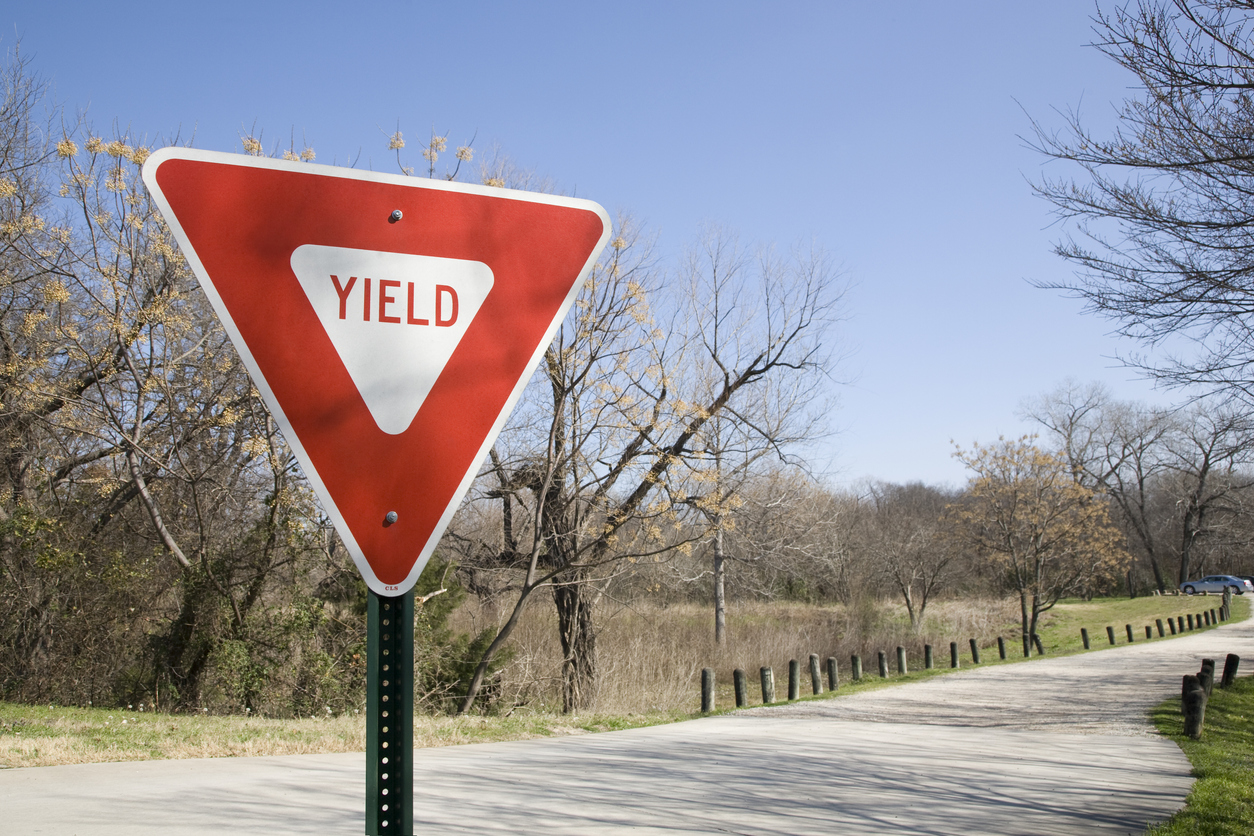Kibbey Wagner Injury & Car Accident Lawyers | October 28, 2022 | Florida Law

One of the most common causes of car accidents is drivers failing to yield to other motorists. Unfortunately, many drivers have a misconception of what it means to yield the right of way. While drivers themselves may be well-intentioned, this misunderstanding puts the lives of everyone on the road at risk.
To help dispel the confusion, here is an exploration of what yielding the right of way means in Florida and how to do it.
Yielding Is Fundamental to Driving
Yielding the right of way doesn’t solely apply to a busy intersection. It encompasses the entirety of driving and applies no matter where you are, be it in a busy city or an empty, rural area. As such, it is something you always need to be aware of, but what does it mean, exactly?
Yielding the right of way means allowing another vehicle on the road to accelerate first. If you pay attention to the traffic signs next time you are out and about, you will notice that they often dictate who has the right of way.
When one driver has the right of way, it is the other driver’s responsibility to yield. This simple process maintains the flow of traffic and when adhered to correctly, allows drivers to return home safely.
When To Yield the Right of Way
Drivers are required to know when to yield, as doing so is the most infallible means of preventing an accident.
Here are some of the most common places where yielding is vital:
- Leaving a parking lot
- Leaving a driveway
- Leaving a private road
- Turning left
- T-intersections
- Entering an interstate
- Railroad crossings
Additionally, drivers must yield to stopped buses, pedestrians, and emergency vehicles such as ambulances and fire trucks.
Failing To Yield the Right of Way Causes Car Accidents
If you are involved in an accident where someone failed to yield the right of way, make sure to take pictures of the damage incurred and write down everything you can remember about the incident.
From there, ask the police for a copy of the police report and see a doctor within 24 hours of the accident. This is particularly important, as some injuries are not immediately apparent and may take a couple of days to appear.
Determining the Right of Way in Florida
Every driver should understand how to determine the right of way. Some situations happen very quickly and do not afford much time to think. In these instances, a working knowledge of the rules of the road is paramount to everyone’s safety. Here are a couple of guidelines to remember.
Controlled Intersections
Controlled intersections have some kind of traffic sign instructing drivers on how they should yield. The most obvious example is a stop sign.
Uncontrolled Intersections
When entering an uncontrolled intersection, yield to any cars that are already within it. If you happen to pull into the intersection at the same time as another vehicle, always yield to the vehicle on your right.
Crosswalks
Pedestrians always have the right of way at a crosswalk, so always make sure you stop and give them time to cross safely before you proceed.
Highway Exit Ramps
If you are approaching an exit ramp, all of the cars already on the ramp have the right of way. This applies regardless of whether the traffic is merging into a single lane.
Never Assume That Others Will Follow Right of Way Rules
A good rule of thumb is to never assume that anyone else on the road will obey the rules. Approach each situation with caution and safety, and remember, the goal is to ensure everyone makes it home safely.
Contact Kibbey Wagner Injury & Car Accident Lawyers For Help Today
For more information, please contact the Stuart, Port St. Lucie, or Palm Beach Gardens car accident law firm of Kibbey Wagner Injury & Car Accident Lawyers to schedule a free consultation today.
We proudly serve Martin County, St. Lucie County, Palm Beach County, and its surrounding areas in Florida:
Kibbey Wagner Injury & Car Accident Lawyers Stuart
73 SW Flagler Ave
Stuart, FL 34994
(772) 444-7000
Kibbey Wagner Injury & Car Accident Lawyers Port St. Lucie
1100 SW St. Lucie West Blvd. Ste 202
Port St Lucie, FL 34986
(772) 247-3374
Kibbey Wagner Injury & Car Accident Lawyers Palm Beach Gardens
300 Ave of the Champions Ste 170
Palm Beach Gardens, FL 33418
(561) 944-4000
